Theism now
Sun. April 24, 2005Categories: Abstract Dynamics
To Reading, then, with Infinite Thought, for a conference on ‘The Meaning of Theism’. (Reading: the very model of ‘the typical provincial British town’, cored-out, dessicated, an anonymous hosting surface for the dull brightness of Capital’s semiotic pollution, a non-place without even the memory of character.)
According to Anthony Kenny, you can tell whether a philosophy of religion specialist is a believer or not by their neckwear. Believers wear ties wheareas unbelievers go tieless. The speakers at yesterday’s conference conformed to type: Kenny himself – a not-quite believer and self-professed ‘agnostic’ – and dull secular-humanist Richard Norman went without ties; committed theists John Haldane and Alvin Plantinga wore them.
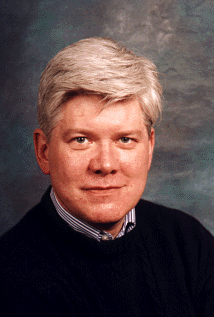
Haldane has an insouciantly persuasive manner, complete with alpha male body posture, the authentic accent of modern British power (a gentle Scottish burr) and a grimace-smile tic that makes me imagine him being effective as a state torturer. He began his paper, ‘Religion and the Restless Heart’, by enthusiastically heralding Ratzinger, which is hardly surprising: if ever there were a Pope for Catholic intellectuals, it is Benedict XVI who – whatever else he might be – is a theologian of fearsome intelligence and learning. He ended his presentation by openly affiriming what he himself characterised as a non (if not quite anti) democratic, elitist conception of divine illumination.
Haldane was clear that the ‘meaning of theism’ involves the commitment to a personal god who freely chooses to create the world. The divine attribute of being ‘creator and sustainer of the univese’ is, then, contingent, unlike such other qualities such as ‘omnipotence’ and ‘perfect goodness’. That is to say, for the theist it is unimaginable that God not be omnipotent, perfectly good etc, but it is possible to concieve God as not having created the world. From the side of the created, however, the relationship is necessary, not contingent: our existence depends upon the necessary being, God. Hence neo-Platonist claims that the world emanates from God, that God’s love necessarily expresses itself in creation, that all beings are a modifications of a single Being, cannot be right. The creation of the world is an act of volition by a personal entity.
Haldane then argued that philosophical thought is periodically haunted by a ‘return of the repressed’. Certain styles of argument never go away, they lurk in some subdued place before resuming their dominance. A repressed that is returning now is the idea that philosophy should be about wisdom. Perhaps the Stoics were the first to articulate this, in their opposition between practice and discourse, their claim that philosophy should be about ‘forming a demeanour’ which is answerable to metaphysics. In modern times, the call for an end to philosophy in activity was made most forcefully by existentialism which, after years of neglect and quiet derision, is now making its return. He argues that philosophy is ‘completed’ by religion; that philosophy is unfinished whilst it remains only contemplative.
This set up the main theme of Haldane’s paper: how does humanity’s existential plight – its restless yearning and feeling of homelessness – relate to religion? Is there some innate impulse in human beings to believe in God?
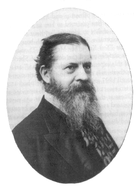
Haldane referred to two arguments which claimed that there is in fact such an impulse: Peirce’s ‘neglected argument’ and C. S. Lewis’s argument from desire. Deliberately echoing the Kant of ‘The Critique of Teleological Judgement’, Peirce reasons that:
”
there is a reason, an interpretation, a logic in the course of scientific advance, and this indisputably proves to him who has perceptions of rational or significant relations, that man’s mind must have been attuned to the truth of things in order to discover what he has discovered. It is the very bedrock of logical truth.”
In other words, “unless man has a natural bent in accordance with nature’s, he has no chance of understanding nature at all.” Our ‘attunement’ to nature evidenced through “the discoveries of science, their enabling us to predict what will be the course of nature, is proof conclusive that though we cannot think any thought of God’s, we can catch a fragment of his Thought, as it were.”
Lewis, meanwhile, argued that people want, and know they want, something they cannot find in the world. Since there are satisfactions available for other, more banal, desires (the desire for food, or sex, for instance), there must also be a possible relief for this existential ache – but not in this world. Hence human beings must have been made for another world.
Now, as Haldane readily conceded, it is clear that not every desire has an objective correlate: for example, the human desire to fly must remain, for the moment at least, unsatisfied. Thus Lewis is forced to argue that the desire for existential completion is in some sense a ‘natural’ rather than an ‘artificial’ desire, that it is innate rather than acquired, spontaneously-occurring rather than cultivated, non-eliminable rather than eliminable.
(The assumption that desire implies a possible satisfaction will raise the hackles of anyone keyed into pyschoanalysis, which, of course, insists that desire entails the impossibility of any satisfaction. In On Belief, Zizek in effect counters Lewis’s argument (and Haldane’s re-presentation of it) with his invocation of the existential Heidegger. Zizek is concerned to refute ‘the notion that there is a home, a “natural” place for man: either this world of the “noosphere” from which we fell into this world and for which our souls long, or Earth itself. Heidegger points the way out of this predicament: what if we effectively are “thrown” into this world, never fully at home in it, always dislocated, “out of joint,” and what if this dislocation is our constitutive, primordial condition, the very horizon of our being? What if there is no previous “home” out of which we were thrown into the world, what if this very dis-location ground man’s ex-static opening to the world?’ (9) )
Satisfied that he had established that arguments like Peirce’s and Lewis’s offer intimations of ‘our transcendent source and destiny’, Haldane (re)turned to Aquinas to answer the question: is there an innate desire in human beings for the beatific vision? Haldane noted that this is a source of dispute within Thomism, but ultimately took the view that, while there is a desire for knowledge common to all human beings, there is no universal desire for God. The desire for knowledge must be taken through the ‘traditional’ argumetnts for the existence of God – the ontological, cosmological and teleologial ‘proofs’. Once it is established that God is, there is then a yearning to know what God is. Divine llumination is available to all, but some ‘intellects’ will be ‘better-trained’, more able to ‘see’ and appreciate the Divine nature.
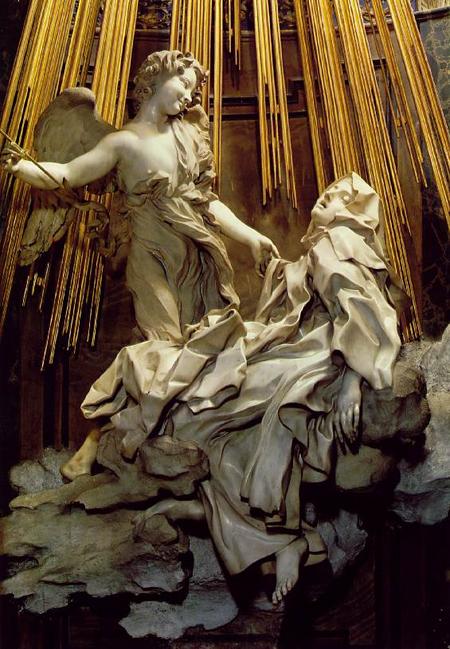
Thus Haldane wanted to contain desire within knowledge. This, and his talk of ‘completion’, will inevitably put the Lacanian in mind of Seminar XX and Lacan’s bid to ‘interpret one face of the Other, the God face, as based on feminine jouissance’. But such jouissance – ‘a jouissance that is hers, that belongs to that “she” that doesn’t exist and doesn’t signify anything’ – is famously opposed to knowledge (‘woman knows nothing of this jouissance’). If God is not all, but the not-all (uttunul), then God cannot be known, not merely contingently (it is not that there is a God that can be known, but beings such as us are not capable of attaining such knowledge) but necessarily (God is that which lies beyond ‘knowledge’, not only beyond knowability). As ever, we can rely upon Zizek for a succinct and lucid account of this knotted logic:
‘even when it is “all”, complete with no exception, the field of knowledge remains, in a way, non-all, incomplete – love is not an exception to an All of knowledge, but precisely that “nothing” which makes incomplete even the complete series/ field of knowledge. In other words, the point of the claim that, even if I were to possess all knowledge, without love, I would be nothing, is not simply that with love I am “something” – in love, I am also nothing but, as it were, a Nothing humbly aware of itself, a Nothing paradoxically made rich through the very awareness of its lack.
Only a lacking, vulnerable being is capable of love: the ultimate mystery of love, therefore, is that incompleteness is in a way higher than completion. On the other hand, only an imperfect, lacking being loves: we love because we do not know all. On the other hand, even if we were to know everything, love would, inexplicably, still be higher than completed knowledge.’ (The Puppet and the Dwarf, 115)
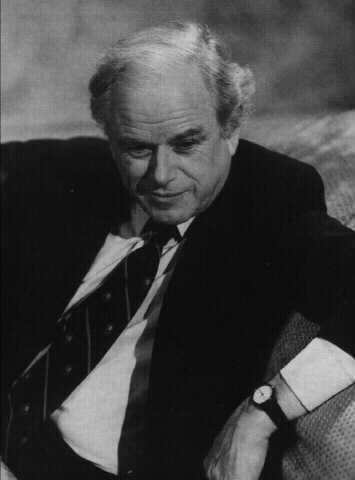
The ‘agnosticism’ advocated in Anthony Kenny’s paper was in some respects similar to Lacan-Zizek’s non-theism. But ultimately his God is simply unknown, whereas theirs is beyond knowledge.
When Kenny speaks, you think of long, balmy evenings drinking red wine on the lawn in Oxford. Kenny, a former Catholic priest turned anti-theist if not atheist, argued that God is inconceivable. Although he was at pains to distinguish inconceivablity from inconsistency (God is inconceivable without being logically inconsistent), it was not always clear what Kenny, in a reversal of the ontological argument, was saying was that cannot be conceived: ‘God’, the concept, or God, the actually existent but unknowable entity. Kenny wanted to say the former, but, implictly if not explicity, didn’t do so consistently. For instance, he claimed that God has no behaviour like the behaviour of human beings or their creations. But if God were a genuinely inconceivable concept, then surely even that is saying too much.
The nub of Kenny’s argument was his claim that it is impossible to speak literally about God because God does not belong to a language game. Any sentence in which ‘God’ appears has an irreducibly metaphorical content. Thus Kenny’s position on religious language is literally equivocal: it is impossible to speak univocally about God, but it is not only that any language about God is analogical – it is also that the concept of God itself is analogical too.
Kenny called upon two scholastic sources in support of that position: John Scotus Eriugena and Nicolas of Cusa. Eriugena argued that God does not belong to any of Aristotle’s categories, so that not only the ascription of anthropomorphic predicates but even the ascription of more abstract predicates such as ‘just’ and ‘good’ was metaphorical. Affirmative theology – theology which claims that God can be described – is not the opposite of negative theology, since even negative theology says too much. God is more than God.
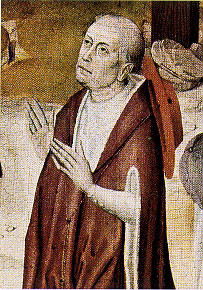
In a kind of pre-echo of Kant and Wittgenstein, Nicolas of Cusa argued that wisdom consists in an awareness of the limits of one’s knowledge. God lies beyond possible knowledge, graspable only as a paradoxical ‘coincidence of opposites’. God might, as Anselm said, be the greatest conceivable being, but he is also that which nothing lesser can be conceived. God no more is than is not. So Cusa calls for a sacred, rather than a brute, ignorance.
Kenny concluded with a reference to two more recent figures: the Dominican priest Herbert McCabe and the believer-turned-agnostic poet A. H. Clough. Kenny focused on McCabe’s argument on prayer. Since it is obvious that God cannot answer all prayers (because good people want incompatible things), the honest believer must accept that petitionary prayer is a waste of time. But it is precisely as a waste of time that prayer should be valued. The time we most value, McCabe argued, i.e. time spent with a loved one ‘doing nothing’, is after all, wasted time. Kenny made McCabe’s position here sound remarkably Bataillie-like: better even than play, prayer removes the believer from the production and creation-fixated business of the profane world.
(Weberian Protestants in this respect at least, Infinite Thought and I were unconvinced by this call to indolence and disengagement.)
In the end, Kenny’s position, with its preoccupation with the limits of knowledge and its attempt to come to terms with the ‘disenchantment of the world’ seemed very twentieth century.
Richard Norman’s ‘The Varieties of Non-Religious Experience’ is best glossed over quickly. Suffice it to say, the dreary lameness of Norman’s secular humanism was the best advert for theism all day. His argument – that there are atheist substitutes for of all of the experiences that might be thought of as uniquely religious and therefore that the secular humanist is missing nothing – was the theological equivalent of a vegetarian sausage. Surely humanism can do better than offer a pathetic, taste-free version of the numinous?
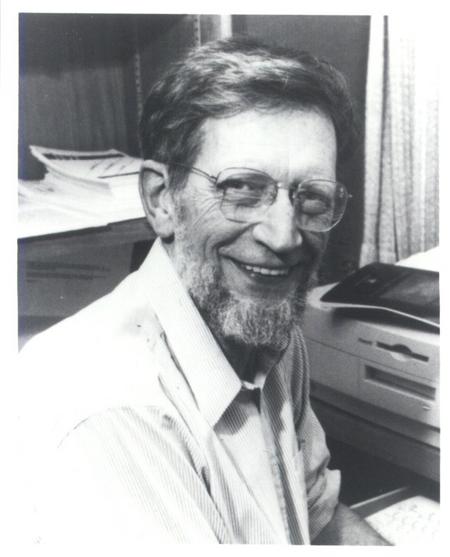
Alvin Plantinga, however, provided all the entertainment his work – a bizarre mixture of Reformation theology and analytic philosophy, like commonsense warped through a Philip K Dick scanner darkly – promised. Plantinga looks like an Amish elder and has a rounded, stentorian speaking voice reminiscent of the Simpsons’ Principal Skinner. His stock-in-trade is a kind of theo-philosophical science fiction, in which the absurd thought experiments of analytic philosophy are used to bolster theism at its most preposterous.
Plantinga’s MO is basically defensive: he aims to show that the ideas that God is logically contradictory or has been disproved by science are wrong-headed. Hence his claim that it is legitimate to treat belief in God is a ‘basic belief’, a foundational belief that requires no further evidence, like our beliefs that other people have minds or that the world did not come into existence five minutes ago. You see, says Alvin, you can’t prove those beliefs are true either, but no-one says that they are irrational. And belief in God is just like that – unprovable but rational. See also his solution to the problem of evil, the idea that the existence of an omnipotent and perfectly good being is incompatible with the presence of evil in the world. Well, Plantinga argues, God cannot create a world free of evil because of ‘transworld depravity’. This gloriously SF concept is coined to show that, there will be wickedess in any world which God chooses to actualize where human beings are free, because all humans suffer from some degree of ‘transworld depravity’.
Plantinga’s concern yesterday was to establish that, contra certain ‘misapprehensions’, science has not proved that God cannot act in the world. Science, in other words, does not entail naturalism – the view that God, or any being like God, cannot exist.
The standard disenchanted view (as put by Bultmann, Macguarrie and others) has been that it is impossible for God to intervene in the world because such action would violate the principle of the ‘conservation of energy'(i.e. there is only a finite amount of energy in the universe and this cannot be added to, merely transformed). Plantinga demonstrated that this objection is question-begging, since it assumes what it needs to establish, namely that the universe is a closed or isolated system. (The principle of the conservation of energy only applies to systems that are closed).
If there is no problem with ‘special divine action in the world’ on the old (classical) model of physics, there is, Plantinga argued, even less of an issue with the new (quantum) paradigm. Quantum theory maintains that the universe is probabliblistic rather than deterministic – miraculous events like walking on water are not impossible, just very improbable (‘but we already know that,’ Plantinga wryly noted).

In his claim that God could be the cause of quantum ‘collapses’, Plantinga sounded oddly similar to the physicist in John Carpenter’s Prince of Darkness who urges us to ‘say goodbye to classical reality’. Needless to say, the time-bending and dream invasions in Carpenter’s film herald the coming of the anti-christ, not the messiah, but the point of Prince of Darkness‘s anti-miracles was the same as Plantinga’s miracles: the traditional naturalistic account of the universe is not adequate.
There is a wonderful scene in Prince of Darkness which Plantinga – who insisted, contra Kenny, that his language about God was very literal – would no doubt appreciate. In it, Donald Pleasance’s priest confesses that the Catholic Church had been selling a lie, the comforting thought that evil is ‘within us’. In fact, as the brotherhood to which Pleasance’s benighted priest belongs knows, evil is a real force, independent of human beings and capable of warping what we take to be physical reality.
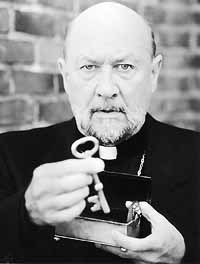
Plantinga certainly successfully routed those who assume that science means that divine intervention could not happen. But the challenge to the interventionist model has two, much stronger aspects which Plantinga did not address. The argument against miracles from Hume concerned empirical evidence – there could never be enough – not logical incompatibility. The issue is: what empirical evidence is there for the metaphysical theory of substance dualism and the related claim that there is a supernatural realm beyond the natural world? The invocation of quantum physics actually works against Plantinga here, since it suggests that, even if there are wildly improbable anomalies, these can be accounted for by entirely physical means. The hypothesis of a supernatural agent is more superfluous than ever. Quantum physics sophisticates and revises naturalism; it is not an alibi supernaturalism can use to creep back in.
The second problem is the one hinted at by Kenny but stated most powerfully by Spinoza. Logically, the idea of a personal, transcendent entity that performs miracles makes no sense.
Ultimately, it was clear from yesterday’s papers that theism and its discontents remain in a kind of twentieth-century gentlemanly stand-off. Literal belief in the the personal, interventionist God who listens and acts is countered by a disenchanted assertion of secularism or by a faith that has disavowed literal belief. Within Spinoza, Lacan, Zizek and Badiou lie the philosophical resources from which a modern naturalistic religion that offers a way out of this impasse could be built. Such a religion would achieve wisdom in the sense that Haldane called for, since it would be metaphysically rigorous AND existentially committed. Time for moNONtheism….
[…] – Theism Now, April 2005 http://k-punk.org/theism-now/ […]